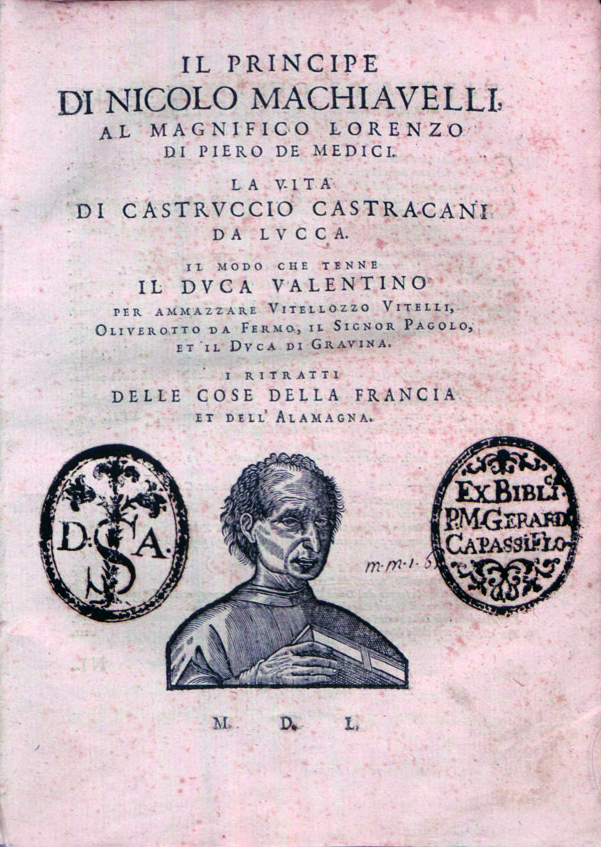The Shape of History: How The Prince has shaped the world
- Khanyile Dlamini

- Jun 4, 2020
- 2 min read
The text was written by philosopher Niccolò Machiavelli in the 16th Century. In the text, Machiavelli talks about the ruling of Italian states, laws, and the people who lived in those states.The Prince is sometimes claimed to be one of the first works of modern philosophy, especially modern political philosophy, in which the "effectual" truth is taken to be more important than any abstract ideal.
He writes about Princes and powerful individuals who controlled or seized states. He draws a vivid picture of the Italian political spectrum during the 16th Century. The Prince frequently references past events; such as Louis XII's invasion of Italy in 1498 and 1499. Machiavelli relates past events to present (his present), comparing and contrasting the similarities and differences to the events occurring during his time.
Throughout this entire text, I found numerous areas that could be easily paralleled to how the world is now. For example, many of the laws and practices that were used to manage states at that time are currently found in many countries; however they are not as radical as stipulated in The Prince but the theory is the same. Machiavelli writes, “The problem is that people willingly change their ruler, believing the change will be for the better; and this belief leads them to take up arms against him” (Text, Chapter 3, page7). This quality is similar in the sense that, it has a Democratic element to it, like that in which the United States of America and majority of other countries are governed under.
Machiavelli emphasizes that the power is in the peoples hands, and if dissatisfied with their current ruler, they would dispose him or her through voting. However this is theoretical..., because during his time, Princes found ways to tame the people - just like how some government's stample the voice of the people through violence, like in South Africa during the Apartheid regime. Machiavelli addresses the corruption he witnessed when it came to governing states, If a Prince feared being dethroned by the noble class, he would appoint ministers to govern on his behalf. And in return, they would be rewarded with wealth and other benefits to maintain their loyalty. According to Machiavelli this worked; and he writes, “Such barons have their territories and their own subjects…” (Text, Chapter 4, page 15).
Even in recent history, corruption is still running rampant in politics. According to BBC News, Zimbabwe’s reigning ruler, President R.G Mugabe managed to win the last presidential election for the seventh consecutive term. Opposition leader M. Tsvangirai and majority of the citizens agree that the elections were fraudulent. Based on my on knowledge, I know that Mugabe and his party gave land to individuals, and in return, he expected their vote.
Machiavelli writes about events occurring during the 16th century and before, and most, if not all the things he talks about are still there in our present day. Over 400 years later, governing, ruling of nations, roles played by citizens, and ruler-citizen relations still resemble those present in Machiavelli’s time.










Comments